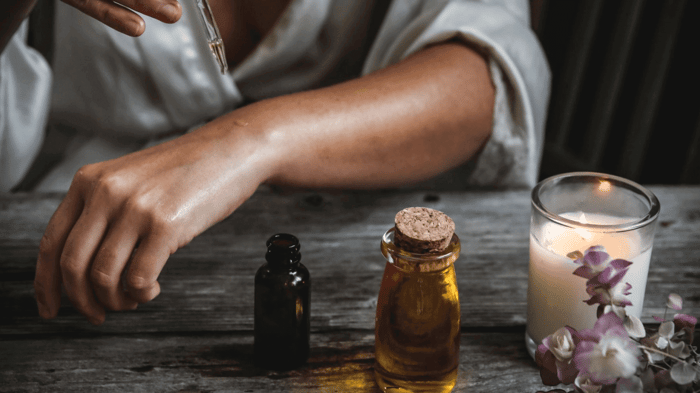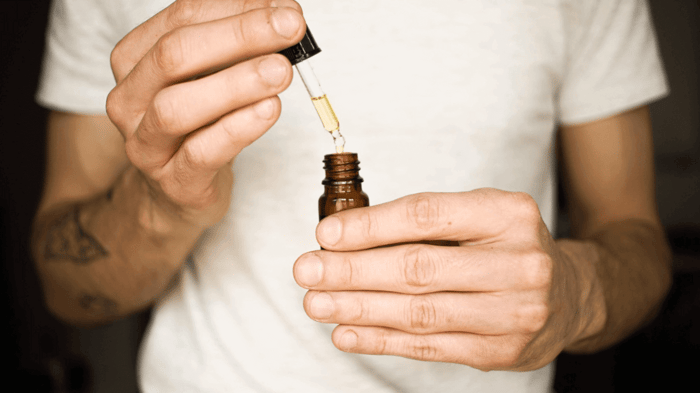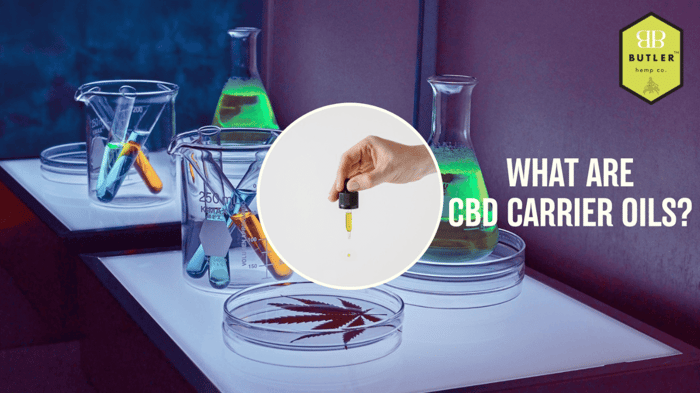11/10/2022
You’ve likely heard that the most effective way to take CBD oil is to put it under your tongue and wait for it to absorb into your bloodstream via the thin oral membranes in your mouth. And, given the popularity of edibles, you probably also understand that CBD oil can be ingested with food or beverages.
In fact, if you were to Google it, you might think you can put CBD oil on or in just about anything — or at least you’d find a story of someone who has tried it.
Your curiosity is a natural byproduct of trying something new; anyone who has recently discovered the benefits of using CBD oil would understandably be enthusiastic about finding new ways to use their favorite products. In contrast, people who worry about ingesting CBD oil — those worried about experiencing side effects or failing drug tests — may be more interested in the other uses of CBD as a way to experience the benefits without the drawbacks.
Regardless of your reason, you may be wondering:
- • Can you put CBD oil in a diffuser?
- • Can you put it on your skin?
- • How does CBD work with essential oils?
- • Is it still as effective if you opt for these less traditional delivery methods?
Let’s discuss these questions one at a time.
Can You Put CBD Oil In A Diffuser Or Use It Topically?
What happens if you put CBD oil in a diffuser?
While CBD can be used in a number of ways, it’s not a magical substance that works no matter what you do with it.
If your question is “Can you diffuse CBD oil,” the answer is technically yes. You can put CBD oil into the diffuser, and the diffuser will work as normal. However, you won’t achieve anything except dispersing a light scent of your CBD product throughout the room.
Diffusers work by spreading scents through the air. The active compounds that provide pain relief and relaxation benefits must enter your body to work as intended. You simply can’t inhale a residual dose large enough to be clinically effective if you’re just breathing in CBD oil-scented particles given off by a diffuser.
In short, CBD oil is not effective when diffused.
Given that high-quality CBD products can be on the pricey side, diffusing CBD oil on a regular basis would be a significant waste of money.
Can you purchase specific CBD oil for diffusers?
Because CBD is not effective when diffused, few products exist that list diffusion as one of the delivery methods. However, you might see products listed as CBD diffusers often sold in conjunction with CBD oil products.
If you come across a product like this, it might be wise to steer clear. A company willing to mislead users about the effectiveness of diffused CBD may also use misleading advertising in other areas. You don’t want to purchase a product thinking it’s made from high-quality cannabis products when it’s actually not. Additionally, diffusing low-quality CBD oils that have contaminants such as heavy metals or pesticides could be hazardous.
At best, you’d be wasting your money. At worst, you could damage your health or start a fire in your home.
Can CBD be used topically?
The good news is you absolutely can use CBD oil on your skin to great effect.
Topical CBD products allow you to target specific problem areas of your body. If you have arthritis in your hands, for example, or sore muscles from an exercise routine, you can use a soothing CBD cream on your skin to deliver a high dose of active compounds right where you need them.
One interesting difference between topical CBD products and tinctures or edibles is that, with topicals, you can use a full-spectrum product without fear of failing a drug test.
Humans have cannabinoid receptors in our skin, which allows cannabinoids to enter the endocannabinoid system and produce pain relieving and muscle soothing effects. However, cannabinoids cannot enter the bloodstream through the skin, and will therefore not cause a positive result on a drug test. This is true even if you choose a product with a relatively higher concentration of THC.
Note that this is very different from any CBD product absorbed sublingually or ingested orally. If you place a full-spectrum product containing THC under your tongue or eat it with your food, that THC will make it to your bloodstream sooner or later. Even products that don’t contain enough THC to cause a recreational high can generate a positive drug test result.
Therefore, if you have to undergo regular or spontaneous drug testing, you may want to opt for a topical cream to stay on the safe side.
Interestingly, CBD products can also complement a well-rounded skincare routine. The essential oils contained in most topical formulations have many skin benefits, and CBD itself is a powerful antioxidant and anti-inflammatory agent.
As a bonus, Butler Hemp Co. uses a heavily moisturizing cream as the base for our Soothe Pain Relief Cream. We highly recommend it for use on dry skin or to help heal scars and sunburns. It’s best to avoid applying the cream on broken skin or open wounds, but it can absolutely soothe surrounding areas of pain and irritation.
How does CBD compare to essential oils?
CBD is similar to essential oils in that they’re both concentrated versions of the essential elements of whatever plant they come from. CBD oil is the concentrated form of cannabidiol, which is one essential element in the hemp plant. Others you’ve likely heard of include cannabinol (CBN), cannabigerol (CBG), and the famous delta-9-tetrahydrocannabinol, or THC.
Essential oils are also plant extracts. Press a peppermint leaf between your fingers and the residue left behind will be largely composed of peppermint oil. Do this on a large enough scale, perhaps with a mortar and pestle, add a lightweight carrier oil of choice, and you could fill a bottle with essential oil using peppermint leaves from your garden.
Just as different essential oils have unique effects — some people use peppermint oil to stimulate clear thinking and soothe nausea and headaches — the components of the hemp plant also have distinct effects. CBD helps with relaxation and pain relief, for example, but it’s THC that causes a “high.” You can use pure CBD oil without fear of a high, because that's simply not one of its effects.
Should you use a topical CBD product with other essential oils?
That depends:
Do you want a pure CBD experience, or do the added benefits of essential oils sound appealing?
In most cases, topical CBD products do contain essential oils from other plants besides hemp. Usually, these essential oils complement or amplify the effects you’ll be getting from the CBD.
For example, Butler Hemp Co. offers a pain relief cream containing aloe vera, calendula, rosemary, chamomile, lavender, sunflower, and cucumber extracts in addition to its main ingredient of CBD. Some of our other products contain oils of mint, geranium, eucalyptus, orange, and vanilla.
These options allow you to experience the same benefits of topical CBD you’re used to — potent pain relief and muscle relaxation — with the added bonus of soothing, calming compounds and scents from other plants.
Unless you have allergies to certain essential oils, there’s no need to limit yourself to a product containing only CBD. The addition of essential oils will not dilute the CBD or make it any less effective; it will only boost the potential benefits you’ll receive.




